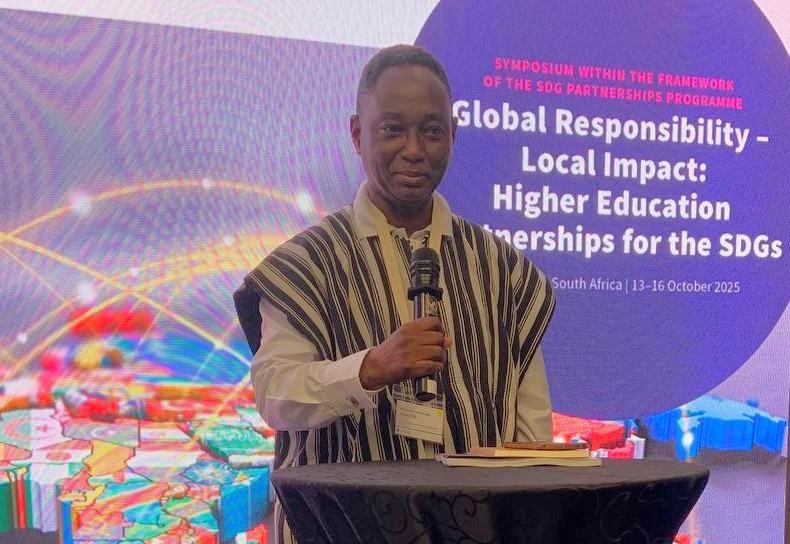A three-year partnership between the Kwame Nkrumah University of Science and Technology (KNUST), Kumasi through the Centre for Settlements Studies, and RWTH Aachen University has been recognised as one of three flagship projects presented at the 2025 DAAD SDG Partnerships Symposium in Cape Town, South Africa.
The initiative, known as Building Resilient Communities through the Integration of Climate Adaptation with the SDGs for University Education and Research (BRIDGE), focuses on strengthening climate change education, research, and community engagement in Ghana. Funded with about 220,000 euros by DAAD and Germany’s Federal Ministry for Economic Cooperation and Development, BRIDGE aims to bridge academic research with community-driven adaptation strategies.
Under the project, 16 academic staff and 10 PhD students from KNUST have received training in water resources management and open educational resources at RWTH Aachen’s Department of Engineering Hydrology. Seven PhD students also undertook a three-month exchange in Germany, gaining international research experience and engaging with interdisciplinary climate researchers.
To enhance digital transformation, the German Academic Exchange Service (DAAD) has provided 5,000 euros to establish an Open Educational Resources (OER) laboratory at KNUST. The facility is expected to widen access to digital teaching and learning resources across the university.
The BRIDGE project promotes collaboration between academia and local communities. Two traditional leaders from Ghana’s Volta Region participated in the Extreme Water Conference in Hannover, Germany, supported by the Volkswagen Foundation. Their involvement demonstrated the project’s commitment to linking local experiences with global discussions on water management and climate resilience.
At the symposium, themed “Global Responsibility, Local Impact: Higher Education Partnerships for the SDGs,” Professor Divine Ahadzie, representing KNUST, highlighted the project’s innovative approach to integrating local wisdom with academic research.
“Our research must begin with community-validated problems,” Prof. Ahadzie said. “When communities define the challenges they face, our scientific work becomes more relevant, inclusive, and impactful.”
He also emphasized the need to appreciate the ‘genius of place’, referring to the unique insights, knowledge systems, and contextual wisdom embedded within local communities as a foundation for meaningful research engagement.
“Communities are not just beneficiaries of research; they are co-creators of knowledge,” he noted, underscoring the importance of continuous feedback mechanisms that enable sustained dialogue, build trust, and ensure effective community uptake of research outcomes.
Through its five work packages, which cover climate risk assessment, curriculum development, capacity building, digital transformation, and project management, BRIDGE continues to strengthen the link between research, education, and the Sustainable Development Goals. Its selection as a flagship initiative underscores its role in advancing collaborative, community-centred climate adaptation between Ghana and Germany.


















